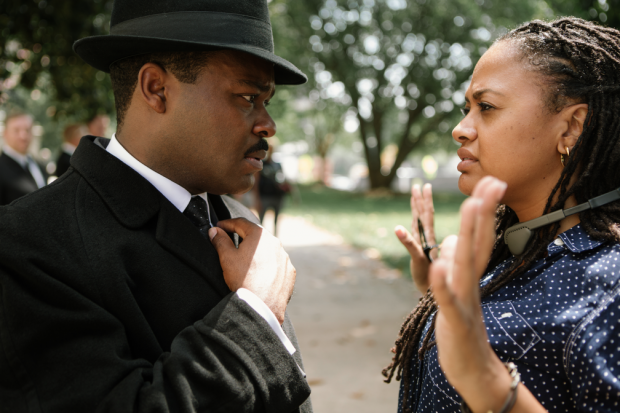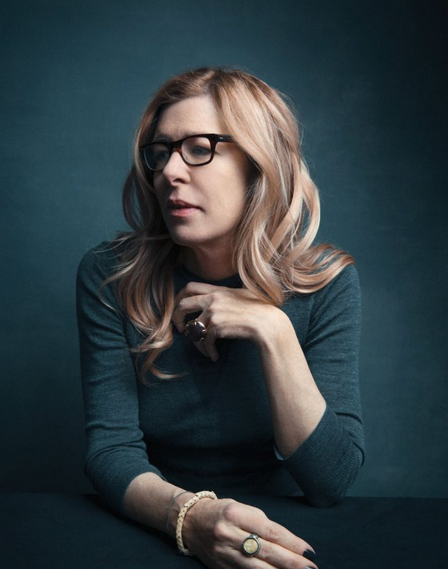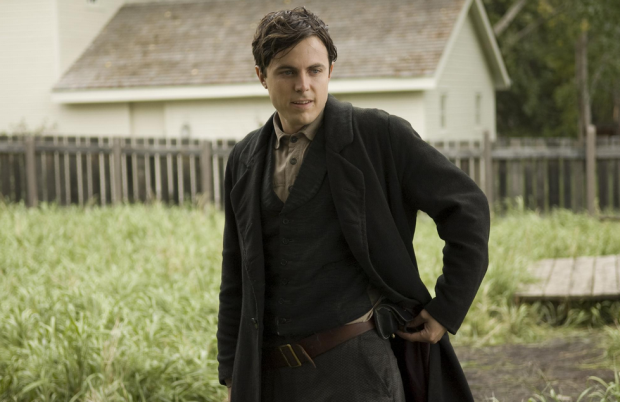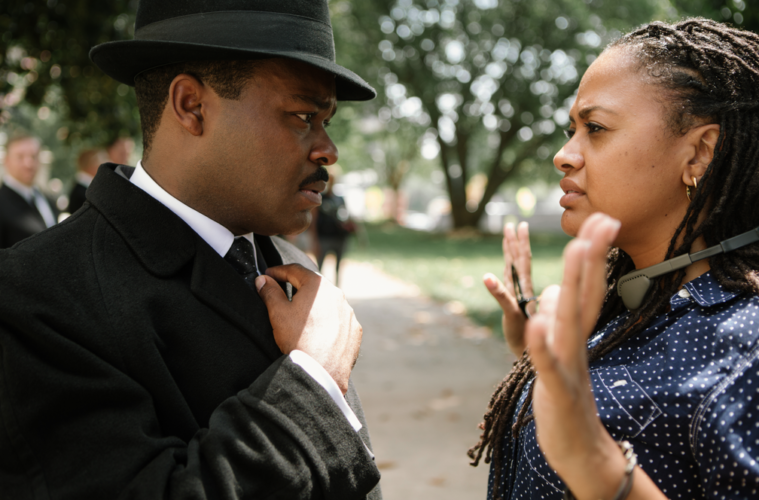
Collaborating with Andrew Dominik, Terrence Malick, Steve McQueen, and now Ava DuVernay, there are few more accomplished producers working in Hollywood than Dede Gardner. With a clear vision for excellence — and not simply what will initially generate the most revenue — it’s been exciting to track her work with Brad Pitt and their production company, Plan B. Following 12 Years a Slave, she once again returns with one of the year’s best films, Selma, and we got the chance to discuss bringing the project to life.
Sitting down for a one-on-one conversation during the film’s New York press junket we talked about see the components come together, the structure, casting David Oyelowo, as well as jumping to the legacy of her films — specifically The Assassination of Jesse James by the Coward Robert Ford — and an update on Andrew Dominik‘s Blonde, Terrence Malick‘s The Voyage of Time, and James Gray‘s Lost City of Z. Check out the full conversation below.
The Film Stage: So, with Selma, you’ve been developing this for awhile. When you found Ava, what was that moment like, and when you knew it would be the perfect fit?
Dede Gardner: Well, perfect fits tend to actually happen over time. They are not instantaneous. David [Oyelowo] suggested her and sent us Middle of Nowhere, which we thought was terrific and it seemed like a wise choice to start the process and see what happens. As evidenced by the film, she never let go and I’m really glad she didn’t.
There’s an emotional current running through this film like none I’ve seen this year. There never seems to be a false note. Was that a joy seeing that coming together as a producer and when did you first know it would click together?
 Well, it always clicks. It just might not click to anyone else’s liking. Do you know what I mean?
Well, it always clicks. It just might not click to anyone else’s liking. Do you know what I mean?
Yeah.
The truth is that you embark on this, making movies, and you just watch it happen. Sometimes people lots of people see them and sometimes lots of people don’t, but if they don’t I don’t therefore [think it worked]. It’s just a different thing. She was so confident and so resolute in a very heartening and calming way about what she wanted to do with the film, what she wanted to do with the script, how she wanted to make this movie, what she wanted the movie to consist of. It all made a ton of sense. You knew from the minute go that she was committed to verisimilitude and authenticity, which is something we strive for in all of our films, so that was a good box checked. And then you just stand back and watch it and you watch it unfold.
Even though this is a Paramount release it has independent sensibilities. It may only take place over a short time, but the scope is large with the ensemble. How did you equip Ava DuVernay?
Yeah, she was ready. That’s just about building a great team. The team was kid of assembled by all of us. She obviously has a long-standing relationship with Bradford Young and Aisha Coley, her casting director, and everyone knows the great Ruth Carter, and Mark Friedberg, we actually met through Adam Stockhausen, whose our production designer on 12 Years a Slave. You just build your unit in a way.
When the dailies were coming back for the first time and seeing Bradford Young’s work, which is just….
…it’s so good.
It’s insane.
Yeah, well he’s someone we wanted to work with. We were like, “Oh, I’m so happy!”
His framing is just beautiful and the speeches he captures, you feel like you are there. Also with the dailies, seeing David Oyelowo’s performance, what was your first reaction?
Just thrilled, just excited. I really did think David was always going to kill it, really truly. Yeah, when you see it come to life it’s always exciting when that happens.
I loved the decision to use the actual footage from the Selma march. Was that early on in the process, that decision?
No, it was part of the plan.
It has a very interesting structure, not what I expected going in.
What did you expect?
I thought we might see more [of the march] then I was very pleased when it was more about the build-up to it.
Right.

I thought that was fascinating and there’s aspects of the movie where you don’t shy away from difficult things in MLK’s life, which makes him more empathetic as a man, instead of just…
A myth.
How was the balance of that? Was there anything left in the editing room floor?
That’s Ava. That’s her cut of the film. I think the film largely represents what her intention was. I don’t feel surprised by any of it. There was always a very specific intention to show King the man as opposed to Dr. King the myth and to show moments of fear and weariness and even dread alongside the moments of joy, enthusiasm and resistance. Because if you do that then being someone like that or aspiring to live a life like that becomes possible for everyone. Because they see a human being doing that as opposed to a superhero.
This is a film where you almost couldn’t predict the perfect timing of it coming out. With current events and it just seems as relatable now as it did back then. You walk out of this movie feeling fired up and you want change. My wife and I had a two-hour discussion after the film last night. Is that something you hope audiences will really take away from it?
Of course I do. I think the notion of what protest is and what protest can do is sorely lacking from our daily dialogue. I wish that the events that we see being discussed and marched about now were one-offs, but they’re not. The truth is these things have been happening for years and years and years and years and years. Why they are getting the attention they are now as opposed to 2, 4, 6, 8, 10, 12 years ago? I don’t know, except maybe, hopefully, it’s a point of intolerance reached. Simply, no more. It’s always interesting to me to see how art factors in these moments. I can’t quite understand it except to believe a little bit in energy.
I also wanted to ask, you know about Jesse James Revival?
I sure do.
Great. Our site, The Film Stage, was an integral part in getting that forward.
Thank you!
Honestly, that’s the movie I’ve watched the most. That and The Tree of Life, which you also produced.
Thanks.
When a movie like that [Jesse James] finds an audience, is that thrilling?
It’s so gratifying.
We’re still going to try and get in more screenings.
Keep going!
Looking back on your projects, that is one of your first.
Yeah, I have an enormous soft spot for the movie. I think the movie is amazing and I loved it then. It’s also the movie – and, also, I love Andrew [Dominik] very much – it’s the movie about which Brad [Pitt] said one of the greatest things anyone has ever said to be and something that I think about all the time. We finished that year and we released Jesse James and Mighty Heart and he said I genuinely couldn’t be prouder. He spoke with me about the shelf life of a movie and he said, “You know, you and I didn’t find Days of Heaven in a theater. We didn’t find Strangelove in a theater. We didn’t find 2001 in a theater. We found them later, so watch. Sit back. Watch.” I thought, “Oh my God. You are the greatest, most generous person-slash-boss, ever.” But it was one of the most valuable things anyone has ever taught me because if you really believe in the long-term chess game, then every decision you make is sort of slightly through that filter and it has helped me a lot.

It was fascinating to see when Andrew Dominik came for the Q&A here – because during press tours you kind of have to be positive about everything – but it was amazing to see him for 45 minutes or an hour talk candidly about every aspect of the production. He’s someone who says he’d rather see my cut in one theater than a botched cut in wide release. Is that the mentality you have producing these films and the directors that you work with?
Yeah, that’s why you do it.
You obviously reteamed with Andrew Dominik again and have plans for another. Is there any update on Blonde?
I’m trying so hard. We really hope we’re going to make the movie with Annapurna. I hope. I really hope. It would be so extraordinary. I know it. But it’s hard. They’re all hard. [Laughs] So say a prayer for us.
We will. As a last question, two of my favorites filmmakers you’ve worked with, James Gray and Terrence Malick, and I’ve heard updates on Lost City of Z. Is that a project still going forward?
I don’t know yet. I’m trying. It’s another one I’m trying. I really love James and really hope [this] summer.
Have you seen The Immigrant?
Yeah.
I really love how it’s getting a push now, a little bit.
I know! How about that?
I was screaming about it in May, but it’s like…
Scream some more. Keep screaming!
Then Voyage of Time…
Hard at work.
Still going strong.
Oh, yeah. That’ll be a couple of years, but yeah.
I actually had the opportunity to see The Better Angels, A.J. Edwards’ debut.
Oh, yeah! How was the movie?
It’s great.
I’m really dying to see it.
Selma is now in limited release and expands on January 9th. Watch conversations with DuVernay and the cast above.

